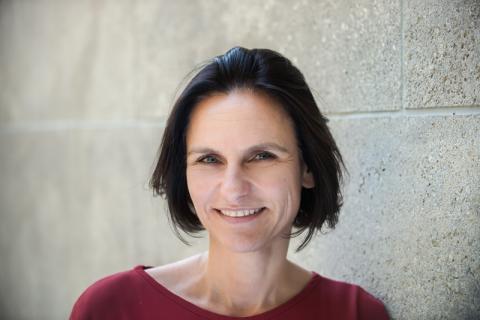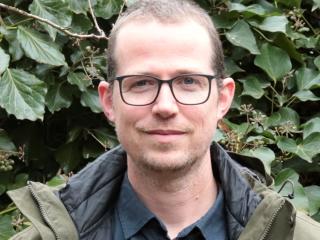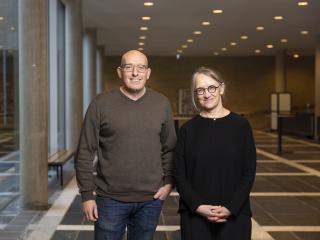Impact Award 2023 for “the pillar and the post” of legal tax aid
The Child-Care Allowance affair is still fresh in memory, but Professor of Legal Protection Diana van Hout had long before trained her sights on an underlying, more fundamental problem. In 2018, she took the first step towards filling a gap in legal protection: legal tax aid for people who cannot afford it. And in 2022, SOFiR, the Stichting Ondersteuning Fiscale Rechtshulp (the Legal Tax Aid Support Foundation), was born. It won van Hout the Tilburg University Impact Award 2023.
What exactly does SOFiR do?
“We are a backup for NGOs that offer tax assistance to people who can’t afford it, like the senior citizens’ association KBO, social counselors, Samen voor Eindhoven (together for Eindhoven), and of course the tax legal aid centers (Belastingwinkels). If they run out of options, they can contact us. As a secondary legal aid agency, we offer for example assistance and representation; we identify and flag fundamental problems. Our affiliated organizations – the Dutch Tax Lawyers Association (NVAB), the Dutch Register of Tax Advisers (RB), and the Dutch Association of Tax Advisers (NOB) – have a large network of tax specialists. What we do is demand-driven and pro bono, in addition to our regular work.”
What kind of requests for help does SOFiR receive?
“They are highly diverse, ranging all the way from fundamental financial issues that affect a large group of people to individual tax problems of, for example, homeless persons who are unable to get their lives back on track because they are facing countless outstanding tax assessments as a result of not having left a postal address with the city when they became homeless. Using our expertise, we are able to adequately resolve most issues: no more endless referrals, we are the pillar as well as the post. We also support existing legal aid. For example, we have succeeded in having tax offices of the tax administration open for business on Saturday on the National Tax Return Day to assist volunteers who work for the tax legal aid centers. And it’s only fair to point out that the tax authorities were eager to help.

There are many initiatives to help people who struggle financially, but these initiatives are scattered. And much of the support available is lacking in tax expertise.
What gave you the idea for SOFiR?
“Some years ago, I was in the US to do research on mediation and I learned that low-threshold legal tax aid, the Taxpayer Advocate Service, is available to an impressive three hundred million citizens. To me, that was remarkable. I then wanted to find out how the Netherlands is doing by comparison. Yes, there is the Legal Aid Act, but it mostly does not apply to tax issues. For example, entrepreneurs can’t rely on it, nor can most private citizens because it is assumed that everyone understands tax matters. There are many initiatives to help people who struggle financially, but these initiatives are scattered. And much of the support available is lacking in tax expertise. In other words, I noticed a gap in legal protection in tax law. Directly after I published about it, I was contacted by NOB and we started thinking about solutions. The problem turned out to be one that many tax specialists recognize.”
-

Niels Boef
NOB chair and SOFiR co-founder and board member“SOFiR presents an opportunity for its affiliates to give back to society. NOB, with a membership of around 6,000, is one of them. Through NOB and its other affiliates, SOFiR has access to about 15,000 tax advisers that normally serve corporations and wealthy individuals. SOFiR is currently working to grow its role as a mouthpiece and to support legal aid agencies, but our long-term objective is to facilitate ‘matchmaking’; getting help to people who are stuck and have nowhere to turn. For NOB members this would open up opportunities for civil society placements and additional litigation experience.
Of course, tax advisers also stand to gain from the research Diana and her colleagues do, for example regarding legal protection of citizens, but the worlds of science and tax have never been far apart. Nor should they be, because new legislation is a driver of constant change in the realm of taxation.
It is beyond most ordinary people to know and understand all relevant legislation, let alone have the ability to fully comply with all of it. SOFiR is one of the few agencies that aim to signal tax bottlenecks faced by people of limited means and to report these bottlenecks to government members, members of parliament, and policymakers in The Hague. By doing so, we hope to contribute to strengthening the legal position of those of our fellow citizens who struggle financially.”
What drives you?
“I worry for the group of vulnerable people who struggle financially. My background has equipped me to help them and that is what I believe I should then do. Besides, helping people is highly rewarding in itself. In a world that foregrounds looking out for number one we tend to forget how gratifying it is to make a difference for someone else. I helped out as a volunteer on National Tax Return Day and because we had a personal contact at the tax authorities I was for example able to arrange a payment scheme for a married couple simply by putting the phone on speaker and talking things through with each other. How great is that! It was a fantastic day for me. There are bad days, too, of course, when it feels like I’m heaving through mud and not getting anywhere. There are some grim catch-22 situations out there, because regulations block each other. But if it were easy, successes wouldn’t be so satisfying.”
From behind their desks, researchers simply cannot imagine all the problems people encounter in real life
How do you as a researcher benefit?
“As chair, I see many questions addressed to SOFiR and that enables me to detect patterns and bring problems to light or start studies into them. This benefits research on legal protection, and the interaction is wonderful. For example, I am currently working together with several researchers on a publication that harnesses different areas of expertise regarding the accumulation of legislation – which is a fundamental problem. And we are preparing an international publication on vulnerable groups.
For tax research as an academic discipline, it is vital to collaborate with a variety of parties like civil society organizations, tax advisers, the tax authorities, and the judiciary. The study of law should never be an exclusively theoretical pursuit. Many tax specialists, both within and outside academia, are committed to creating a solid tax system. Thanks to SOFiR, we now have a much better understanding of tax problems that manifest itself in the middle and lower strata of society. From behind their desks, researchers simply cannot imagine all the problems people encounter in real life. SOFiR helps by building up a treasure trove of unique data.
What kind of research is necessary?
“At SOFiR, we now also become aware of problems that never make it to court, let alone the Supreme Court. The problems that make it to court often concern large corporations or wealthy people, but these problems are just the tip of the iceberg. SOFiR’s legal aid network, on the other hand, stretches to all levels within society, and that allows us to select research topics that can give us a fuller picture.”
Watch the video about the project
Also in Tilburg University Magazine
Date of publication: 29 February 2024



